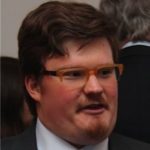 Zachary Evan Shapiro, JD, MSc is a Visiting Fellow in Law and Neuroscience at the Center for Law, Brain, and Behavior, at Harvard’s Massachusetts General Hospital. Zachary will be a part of CLBB, while serving as the Presidential Fellow of Law at The Hastings Center for Bioethics in Garrison, New York. Zach will, contribute a legal orientation to ongoing projects at the intersection of law, neuroscience, and bioethics.
Zachary Evan Shapiro, JD, MSc is a Visiting Fellow in Law and Neuroscience at the Center for Law, Brain, and Behavior, at Harvard’s Massachusetts General Hospital. Zachary will be a part of CLBB, while serving as the Presidential Fellow of Law at The Hastings Center for Bioethics in Garrison, New York. Zach will, contribute a legal orientation to ongoing projects at the intersection of law, neuroscience, and bioethics.
A native New Yorker, Zachary received his BA in Human Health and Medical Ethics from Brown University in 2009 and an MSc in Biomedicine, Bioscience, and Society in 2012 from the London School of Economics and Political Science. Pursuing his interests in law, ethics, and biomedicine, he continued his studies at Harvard Law School, graduating cum laude in 2016.
While at Harvard Law, Zach advanced his interest in legal bioethics, as a Legal Fellow at Harvard’s Multi-Regional Clinical Trials Center, working on projects related to returning clinical trial results, post-trial access, and the ethics of clinical trials. He was awarded a Petrie-Flom Student Fellowship, which allowed him to continue his research into the intersection of neuroimaging, neuroscience, and criminal law. Zachary was a 2015 Fellowship at Auschwitz for the Study for Professional Ethics (FASPE) Law Fellow, and then spent the summer working on legal projects in the Department of Bioethics at the National Institutes of Health. In 2017, Zachary will clerk for the Honorable Judge Timothy B. Dyk, on the Court of Appeals for the Federal Circuit.
Zach is the author of several peer-reviewed neuroscience publications, exploring neuroimaging, neuroethics, and legal implications of neuroscience. His scholarship while at law school concerned the use of functional neuroimaging in lie detection, the ethical issues raised by large-scale genomic research, as well as the growing concern over head injuries in youth football.


